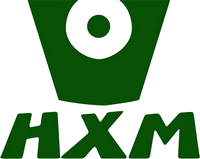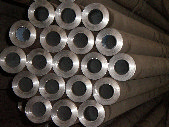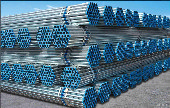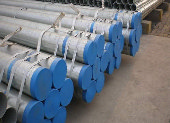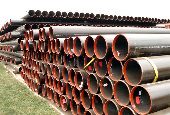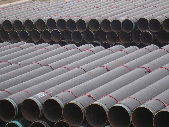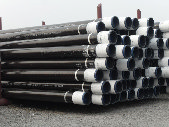Carbon Steel Pipes for JIS Standard
In the global market, Japanese standard carbon steel pipes are the first choice for many industries due to their strict quality requirements and reliability, especially in the construction and manufacturing industries in Japan and neighboring countries.
We supply high-quality carbon steel pipes that meet JIS standards and are widely used in industries such as construction, machinery manufacturing, and fluid transportation. Whether it is standard pipes or customized specifications, we can meet your needs.
Contact us now to get the latest Japanese standard carbon steel pipes prices, detailed product specifications, etc.
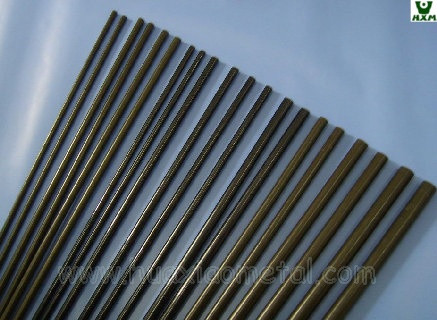
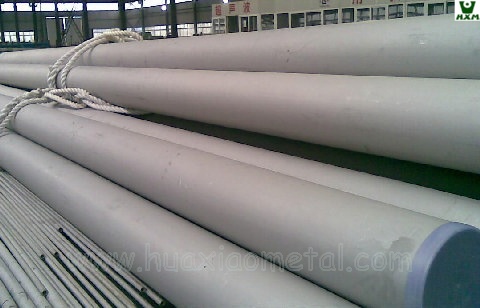
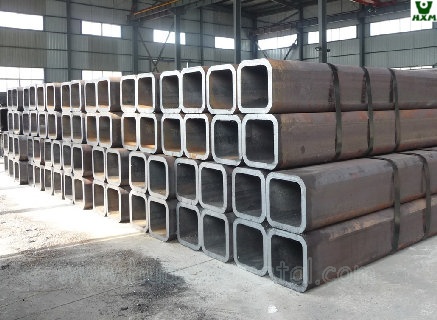
JIS Carbon Steel Pipes
Japanese standard seamless steel pipe is a steel pipe product processed in accordance with the standards formulated by relevant Japanese departments. The commonly used steel grades of Japanese daily standard steel pipes are STPY41, STPG38, STB30, STB33, STB35, STPT42, etc.
JIS Japanese Standard Carbon Steel Pipes Specification
Standard: JIS G3452
Material/Steel Grade: Carbon Steel
Application: for Ordinary Piping
Size(mm): OD 21.9~216.3 x WT2.8~5.8
Standard: JIS G3454
Material/Steel Grade: Carbon Steel
Application: for Pressure Service
Size(mm): OD21.7~216.3 x WT2.8~7.1
Standard: JIS G8305
Material/Steel Grade: G16~G104, C19~C75, E19~E75
Application: Rigid Steel Conduits
Size(mm): OD 21~113.4 x WT1.2~3.5
Standard: JIS G3466
Material/Steel Grade: Carbon Steel
Application: Rectangular Pipes for General Structure
Size(mm): 16 x 16~150 x 150 x 0.7~6
Standard: JIS G3445–Carbon steel pipe for mechanical structure
Material/Steel Grade: Carbon Steel
Application: Carbon steel pipes for machinery, automobiles, bicycles, furniture, appliances, and other mechanical parts
Japanese daily standard steel pipes are made of steel ingots or solid tube blanks through the perforation into capillary tubes, and then hot rolled, cold rolled or cold drawn. to make. It has a hollow section and is widely used as a pipeline for conveying fluid. Compared with solid steel such as round steel, the steel pipe is lighter in weight when the bending and torsional strength is the same.
What is JIS Japanese Standard Carbon Steel Pipe?
Japanese standard carbon steel pipes are carbon steel pipes produced according to the Japanese Industrial Standards (JIS). Japanese standards provide strict specifications for the production, materials and technical performance of steel pipes, and are widely used in Japan and the international market.
Japanese standard carbon steel pipes are produced according to JIS standards to ensure their excellent quality and performance, and are widely used in construction, engineering and fluid transportation.
Common Japanese Standard Carbon Steel Pipe Standards
JIS G3454: This is a standard for carbon steel pipes for pressure piping, suitable for medium and low-pressure fluid transportation.
JIS G3445: This standard covers carbon steel pipes for mechanical structures, which are widely used in automobiles, machinery, and engineering equipment.
JIS G3466: This standard focuses on square and rectangular carbon steel pipes for structures, which are commonly used in building structures and frames.
FAQ
What are the common specifications of Japanese carbon steel pipes?
According to the Japanese Industrial Standard (JIS), Japanese standard carbon steel pipes have a variety of specifications, including different diameters, wall thicknesses and lengths to meet the needs of different applications. For example, the common specifications in JIS G3454 are suitable for high-pressure applications, while JIS G3445 is suitable for mechanical structures.
What is the difference between Japanese standard carbon steel pipe and other standard carbon steel pipe?
The standards for carbon steel pipes vary from country to country, and each standard system has its own unique technical requirements and application scenarios. JIS Carbon Steel Pipes, that is, carbon steel pipes produced according to Japanese Industrial Standards (JIS), have significant differences in chemical composition, mechanical properties, and application range from other common international standards such as ASTM (American Society for Testing and Materials Standards), DIN (German Industrial Standards), EN (European Standards).
Understanding these differences can help customers choose the right pipes according to specific needs, especially in multinational projects, it is crucial to master the comparison between different standards.
1. Material Chemical Composition
JIS carbon steel pipes and other standard carbon steel pipes have slightly different material compositions. Specifically, the JIS standard has different requirements for the content of elements such as carbon, silicon, manganese, phosphorus, and sulfur. These minor composition differences may affect the mechanical properties and application areas of the pipes.
JIS carbon steel pipes usually focus on fine control of tensile strength, yield strength, ductility, etc., especially in mechanical structure applications, the JIS standard will have stricter regulations on the content of alloying elements.
ASTM standard carbon steel pipes focus on pressure resistance and chemical corrosion resistance and are especially suitable for industries such as oil and natural gas that require high strength and corrosion resistance.
DIN and EN standards are widely used in the European market. They focus more on the comprehensive performance and balance of steel, especially in construction and engineering applications.
Therefore, when choosing carbon steel pipes, customers should match the most appropriate standards according to specific project requirements (such as temperature, pressure, environment, etc.). For example, when working in a corrosive environment, American standard ASTM pipes may be more suitable due to their higher corrosion resistance, while Japanese standard carbon steel pipes may perform better when more attention is paid to precision and strength in mechanical manufacturing.
2. Mechanical Properties
Carbon steel pipes of different standards also differ in mechanical properties, especially in tensile strength, yield strength, ductility, etc.
JIS standards usually have stricter control of mechanical properties, especially in the field of seamless steel pipes. JIS standards tend to provide high-precision and high-strength materials for the mechanical manufacturing industry.
ASTM standards pay more attention to performance under extreme conditions such as high temperature and high pressure and are therefore more suitable for petrochemical and high-temperature and high-pressure fluid transportation.
DIN/EN standards emphasize the versatility and universality of carbon steel pipes. In the European market, DIN standard carbon steel pipes are widely used in construction engineering applications, especially in large projects such as bridges and tunnels.
These differences in performance mean that customers should choose the most suitable standard according to the application scenario. For example, in environments that require high-pressure resistance and high-temperature resistance, ASTM standards may have more advantages, while for manufacturing industries that require high precision and consistency, JIS standards are preferred.
3. Dimensions and Tolerances
The dimensions and tolerance standards of carbon steel pipes also vary in different international specifications, especially in terms of outer diameter, wall thickness, and length.
JIS standards have very detailed regulations on dimensions and tolerances, especially in scenarios with mechanical structures and high precision requirements. Generally, JIS standards strictly control the tolerances of outer diameter and wall thickness to ensure the precision of the pipe in the application.
Although ASTM standards also have strict dimensional control, in some applications, their tolerance range is slightly larger than JIS, especially in scenarios with low pressure or non-precision requirements. ASTM standards generally allow a wider range of wall thickness variations, so they may have more advantages in durability and versatility.
DIN/EN standards usually provide more flexible options in size and tolerance, especially in the European market, they provide a wide range of sizes and specifications to meet different engineering needs, and the tolerance control is relatively balanced.
The selection of size and tolerance is crucial in the project. Customers can choose carbon steel pipes of different standards according to the application requirements of the pipeline. In construction, energy, chemical, and other industries, the precise size of the JIS standard is often the first choice for mechanical manufacturing projects, while for engineering projects, DIN and ASTM standard carbon steel pipes may provide more flexibility and choice.
4. Surface Treatment and Corrosion Resistance
In terms of corrosion resistance, different standards have different surface treatment requirements for carbon steel pipes.
JIS standard carbon steel pipes usually adopt galvanizing, coating, and other treatment methods, which are particularly suitable for environments with high requirements for surface quality and corrosion resistance, such as humid and marine climates.
ASTM standard carbon steel pipes are more diverse in anti-corrosion technology. Common surface treatment methods include hot-dip galvanizing, oxidation treatment, etc., which are particularly suitable for harsh environments in the oil and gas industry.
DIN/EN standards focus on the combination of surface treatment and the material itself, and often provide better protection in some industrial projects, especially in chemical and construction projects in Europe.
Therefore, when choosing carbon steel pipes, it is very important to consider the surface treatment methods under different standards. For example, the surface treatment process of pipes in JIS standard is more suitable for projects with high requirements for rust prevention, while ASTM may perform better in high-temperature corrosion resistance.
5. Application
Different standard carbon steel pipes have different application areas:
JIS standard carbon steel pipes are widely used in machinery manufacturing, construction engineering, and automotive industries, especially in scenarios requiring high precision and high strength.
ASTM standard carbon steel pipes are more used in industries such as oil, natural gas, and chemicals that need to withstand high temperatures and high pressure.
DIN/EN standard carbon steel pipes are widely used in European construction projects and infrastructure construction, such as bridges, tunnels, and large construction projects.
